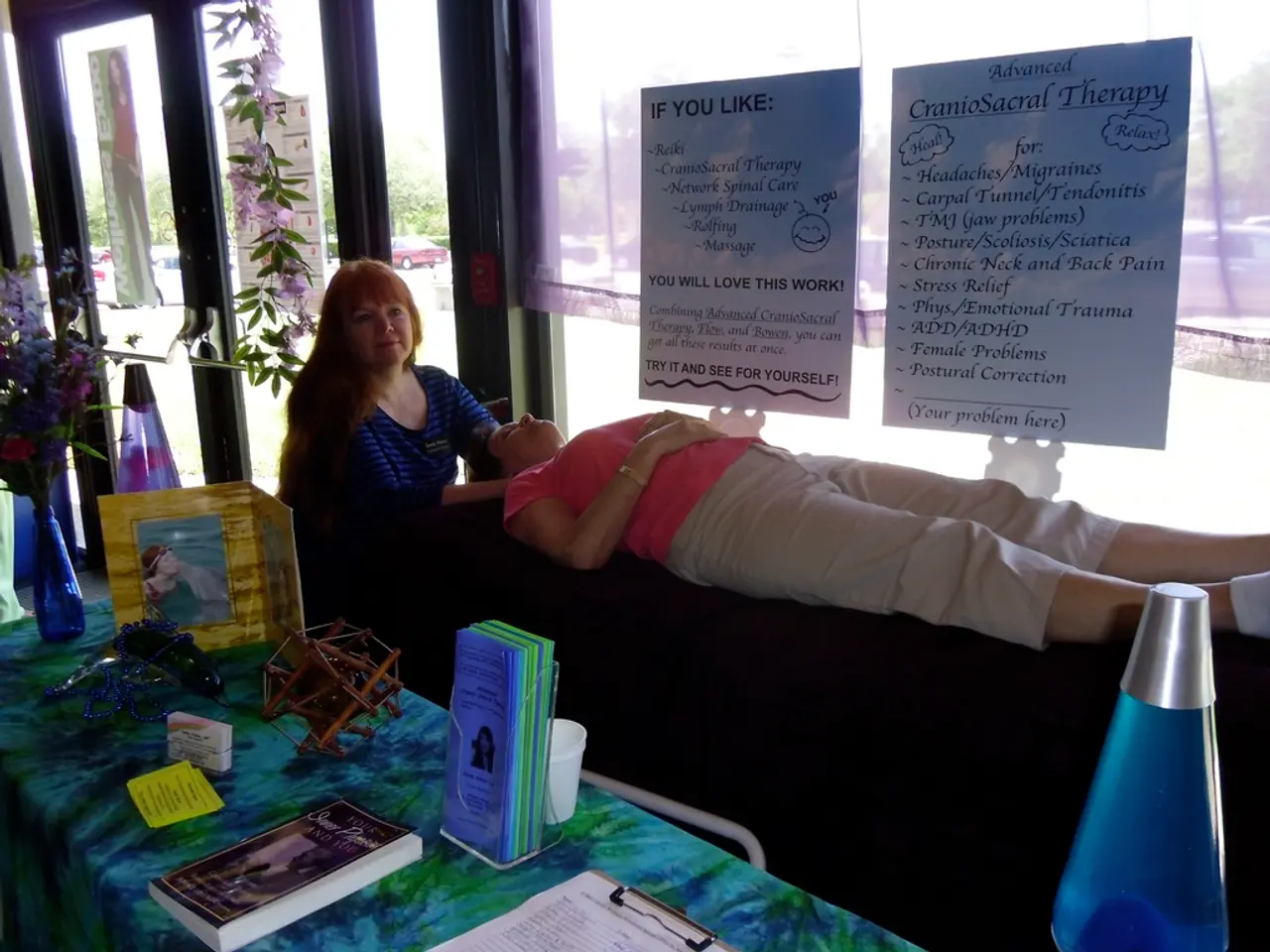Struggling to move forward after the loss of a significant other.
Christa, a 53-year-old reader, has recently experienced the loss of her fiancé due to a severe illness. As she navigates her grief, she finds solace in three inner sentences that remind her of hope, growth, and resilience.
In the last months of her life with her fiancé, their bond was harmonious and full of love. The farewell between them was peaceful, without any disputes, and Christa is at peace with their relationship. Yet, she misses her fiancé infinitely.
Grief, an appropriate and necessary expression of love after the loss of a loved one, does not progress linearly but comes in waves of emotions. Christa finds comfort in knowing that grief takes time, but it also needs trust in her own strength.
To cope with her grief, Christa practices mindfulness and self-care. She engages in walks in nature, light exercise, adequate sleep, soothing rituals like warm baths or massages, and good nutrition. These practices help her alleviate being overwhelmed by painful memories or fear of an uncertain future.
Journaling and memorializing her fiancé also play a significant role in Christa's healing process. Writing letters, journaling, or engaging in rituals to remember and honor her fiancé help her process her grief and maintain his positive impact in her life.
Reestablishing routines, such as regular meal times and sleep schedules, provides stability and a sense of control in this chaos-filled emotional period. Spending time with family, friends, or joining support groups encourages sharing emotions without judgment and reduces feelings of isolation. It also fosters mutual help among people coping with loss.
As a widow, Christa's role can change and become a part of her life's journey that carries not only loss, but also growth and hope. When a glimmer of light starts to appear, it's worth making small plans, perhaps doing things Christa wanted to experience with her fiancé with close friends.
Persistent grief disorder can be indicated by constant longing, circling thoughts, guilt feelings, anger, social withdrawal, lack of joy, sleeplessness, loss of appetite, and deep mental exhaustion. However, Christa finds strength in the belief that it will be okay, different but okay.
Conversations with trusted people, therapeutic accompaniment, or the exchange in a grief group can help Christa manage her grief. As she continues on this journey, Christa's story serves as a reminder that healing and rebuilding after the loss of a loved one is possible, one day at a time.
[1] Mindfulness and Self-Care for Grief [2] Grief and Coping Strategies [3] Journaling and Memorializing for Grief [4] Support Groups for Grieving Individuals
- In the wake of her loss, Christa seeks solace in the United States health-and-wellness practices, such as mindfulness, engaging in walks in nature, light exercise, adequate sleep, soothing rituals like warm baths or massages, and good nutrition, aiming to alleviate painful memories and fear of an uncertain future.
- To foster her mental-health and cope with her grief, Christa undertakes writing letters and journaling, or engages in rituals to remember and honor her fiancé, as a means of processing her emotions and preserving his positive influence in her life.
- As Christa navigates her grief, she takes comfort in spending time with family, friends, and joining support groups, which encourages open dialogue about her feelings, reducing isolation, and fostering relationships built on mutual understanding and empathy.




